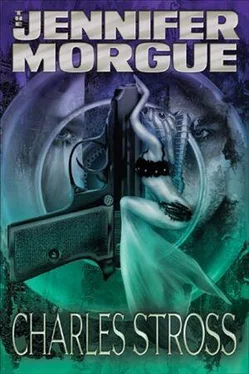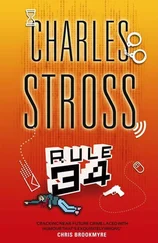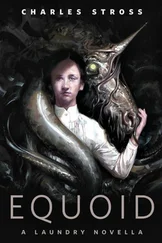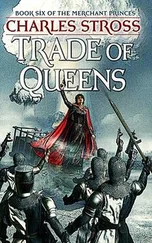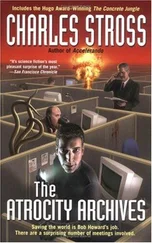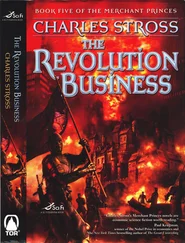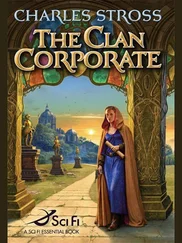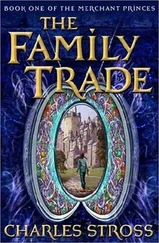Careful consideration will lead one to reconsider this hasty judgment. Criminology, the study of crime and its causes, has a fundamental weak spot: it studies that proportion of the criminal population who are stupid or unlucky enough to get caught. The perfect criminal, should he or she exist, would be the one who is never apprehended — indeed, the one whose crimes may be huge but unnoticed, or indeed miscategorized as not crimes at all because they are so powerful they sway the law in their favor, or so clever they discover an immoral opportunity for criminal enterprise before the legislators notice it. Such forms of criminality may be indistinguishable, at a distance, from lawful business; the criminal a paragon of upper-class virtue, a face-man for Forbes.
When the real Napoleons of Crime walk among us today, they do so in the outwardly respectable guise of executives in business suits and thousand-dollar haircuts. The executives of WorldCom and Enron were denizens of a corporate culture so rapacious that any activity, however dubious, could be justified in the name of enhancing the bottom line. They have rightfully been charged, tried, and in some cases jailed for fraud, on a scale that would have been the envy of Mabuse, Blofeld, or their modern successor, Dr. Evil. When you need extra digits on your pocket calculator to compute the sums you are stealing, you're in the big league. Again, when you're able to evade prosecution by the simple expedient of appointing the state prosecutor and the judges — because you're the president of a country (and not just any country, but a member of the rich and powerful G8) — you're certainly not amenable to diagnosis and detection in the same sense as your run-of-the-mill shoplifter or petty delinquent. I'm naming no names (They have intelligence services! Cruise missiles!), but this isn't a hypothetical scenario.
Interview with the Entrepreneur In an attempt to clarify the mythology surrounding James Bond, I tracked down his old rival to his headquarters in the Ministry of Inward Investment in the breakaway Republic of Transdniestria. Somewhat suspicious at first, Mr. Blofeld relaxed as soon as he realized I was not pursuing him on behalf of the FSB, CIA, or IMF, and kindly agreed to be interviewed for this book. Now at age seventy-two, Blofeld is a cheerful veteran of numerous high-tech start-ups, and not a few multinationals where, as a specialist in international risk management and arbitrage, he applied his unique skills to business expansion. Today he is semi-retired, but has agreed to work in a voluntary capacity as director of the state investment agency.
"It took me a long time to understand the agenda that the British government was pursuing through the covert activities of MI6," he told me over a glass of sweet tea. "Call me naive, but I really believed — at least at first — that they were honest capitalists, the scoundrels."
Over the course of an hour, Ernst explained to me how he first became aware that the UK was attempting to sabotage — his business interests. "It was back in 1960 or thereabouts, that they first tried to destroy one of my subsidiaries. Until then I hadn't really had anything to do with them, but I believe one of my rivals in the phosphate mining business at the time put it about that my man on site was some sort of spy, and they sent this Bond fellow — not just to arrest my "
man or charge him with some trumped-up nonsense, but to kill him." His lips paled with indignation as he contemplated the iniquity of the situation: that agents of the British government might go after an honest businessman for no better reason than an unsubstantiated allegation that he was spying on American missile tests. "I warned Julius to be carefull and advised him to put a good lawyer on retainer, but what good are lawyers when the people you're up against send hired killers? Julius brought in security contractors, but this Bond fellow still murdered him in the end. And the British government denies everything, to this day!"
Ernst obviously believes in his own moral rectitude, but I had to ask the obvious questions, just for the record.
"Yes, I was chief executive of SPECTRE for twelve years.
But you know, SPECTRE was entirely honest about its activities!
We had nothing to hide because what we were doing was actually legal. We've been mercilessly slandered by those rogues from MI6 and their friends in the newspapers, but the fact is, we're no more guilty of criminal activity than any other multinational today: we simply had the misfortune to be foreign and entrepreneurial at a point in time when Whitehall was in the grasp of the communist conspirators Wilson and Callaghan, and their running-dog, so-called 'Conservative' fellow Heath. And we were pilloried because what we were doing was in direct competition with the inefficient state-run enterprises that my good friend Lady Thatcher recognized as mosquitoes battening on the lifeblood of capitalism. That cad Fleming put it about that SPECTRE stands for 'Special Executive for Counter-intelligence, Terrorism, Revenge, and Extortion' — absolute tosh and nonsense! Would a group of criminals really call themselves something that blatant? I'll remind you that SPECTRE is actually a French acronym, as befits a nonprofit charity incorporated in Paris. The name stands for 'Societe professionelle et ethique du capital technologique reinvesti par les experts.[3 Literally: "Professional and Ethical Society of Technological Capital Reinvested by Experts."] Venture capitalists specializing in disruptive new technologies, in other words — commercial space travel, nuclear power, antibiotics. Not some kind of half-baked terrorist organization! But you can imagine the threat we posed to the inefficient state monopolies like the British Aircraft Corporation, the coal mining industry, and Imperial Chemical Industries."
Blofeld paused to sip his tea thoughtfully. "We were ahead of our time in many ways. We pioneered business methods that later became mainstream — Sir James Goldsmith, Ronald Perelman, Carl Icahn, they all watched us and learned — but by then, the commies were out of power in the West thanks to our friends in the establishment, so they had an easier time of it. No need to hire lots of expensive security and build concrete bunkers on desert islands! And yes, that made us look bad, don't think I'm unaware of it — but you know, you want bunkers and isolated jungle rocket-launch bases? All you have to do is look at Arianespace! It's fine when the government bureaucracies do it, but if an honest businessman tries to build a space launch site, and hires security to keep the press and saboteurs from foreign governments out, it's suddenly a threat to world security!"
He paused for a while. "They put the worst complexion on everything we did. The plastic surgery? Well, we had the clinic, why not let our staff use it, so the surgeons could sharpen their skills between paying customers? It was a perk, nothing more. We did — I admit it — acquire a few companies trading in exotic weapons, nonlethal technologies mostly.
And that business with Emilio and the yacht, I admit that looked bad. But did you know, it originally belonged to Adnan Khashoggi or Fahd ibn Saud or someone? Emilio was acting entirely on his own initiative — a loose cannon — and as soon as I heard about the affair I terminated his employment."
I asked Ernst to tell me about Bond.
"Listen, this Bond chap, I want you to understand this: however he's painted in the mass media, the reality is that he's a communist stooge, an assassin. Look at the evidence. He works for the state — a socialist state at that. He went to university and worked with those traitors Philby and Burgess, that MacLean fellow — communist spies to a man. He didn't resign his commission when the British government went socialist, like a decent fellow; instead he took assignments to go after entrepreneurs who were a threat to the interests of this socialist government, and he rubbed them out like a Mafia button man. There was no due process of law there, no respect for property rights, no courts, no lawyers — just a 'License to Kill' enemies of the state, loosely defined, who mostly happened to be businessmen working on start-up projects that coincidentally threatened state monopolies. He's a damned commissar. Do you know why Moscow hated him?
Читать дальше
